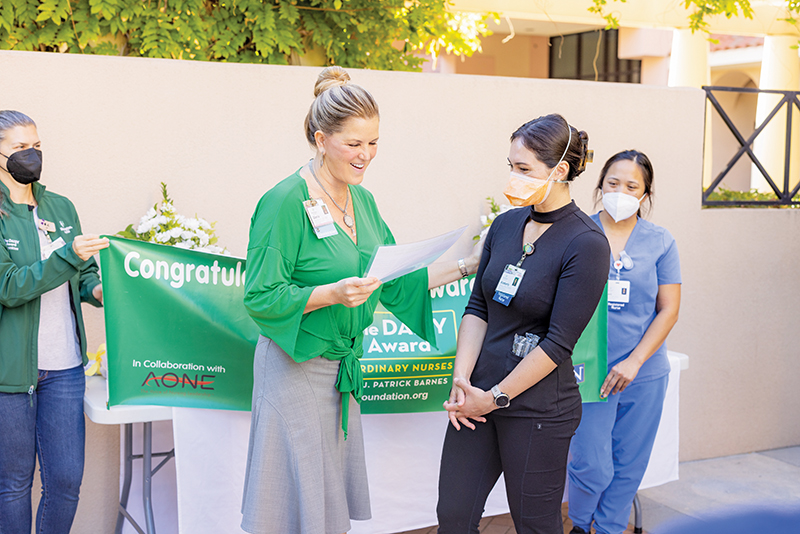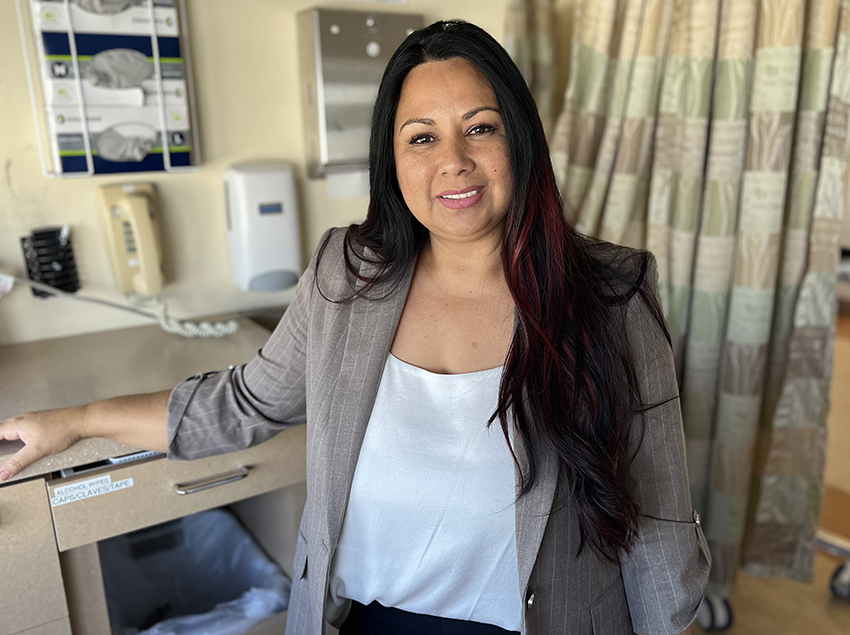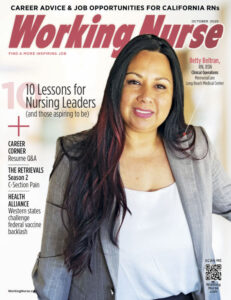CNO Roundtable 2023
Question 4: New Grad RNs
What do you see as the biggest challenges in preparing new grad RNs today?

Our panel discusses the many challenges in preparing new graduate RNs for the current practice environment, and what the panelists wish was part of nursing school curriculum.
 Gloria Carter, Dignity Health – St. Mary Medical Center
Gloria Carter, Dignity Health – St. Mary Medical Center
Two of the greatest threats impacting new grads are faculty shortages and the retirement of our expert nurses. Faculty shortages limit the number of graduates entering the workforce. Retirement limits the availability of experienced nurses to mentor and precept new grads.
 Anita Girard, Cedars-Sinai
Anita Girard, Cedars-Sinai
The practice environment is moving faster than ever. I wish my academic colleagues had more time to teach students about the RN’s professional role. If you know your scope of practice, you can really function at the top of your license.
 Karen Grimley, UCLA Health
Karen Grimley, UCLA Health
The biggest challenge is ensuring practice readiness in areas beyond the traditional acute and intensive care settings. Modifying curricula to include public health, home health, psychiatric care, and clinical practice would better prepare new grads for changes in our industry.
 Katie Hughes, Casa Colina Hospital and Centers for Healthcare
Katie Hughes, Casa Colina Hospital and Centers for Healthcare
The greatest challenge new graduates face is learning to organize their time. As nurses, they must respond to and prioritize multiple demands at once and cope with frequent interruptions. Four-to-six-week preceptorships seem to really help new grads make that transition.



 Evelyn Ku, Henry Mayo Newhall Hospital
Evelyn Ku, Henry Mayo Newhall Hospital Deborah McCoy, USC Arcadia Hospital
Deborah McCoy, USC Arcadia Hospital Theresa Murphy, USC Verdugo Hills Hospital
Theresa Murphy, USC Verdugo Hills Hospital Jinhee Nguyen, Adventist Health Glendale
Jinhee Nguyen, Adventist Health Glendale Tanya Osborne-McKenzie, MLK Community Healthcare
Tanya Osborne-McKenzie, MLK Community Healthcare Gloria Sanchez-Rico, Huntington Health
Gloria Sanchez-Rico, Huntington Health Dianne Sauco, PIH Health Downey Hospital
Dianne Sauco, PIH Health Downey Hospital



